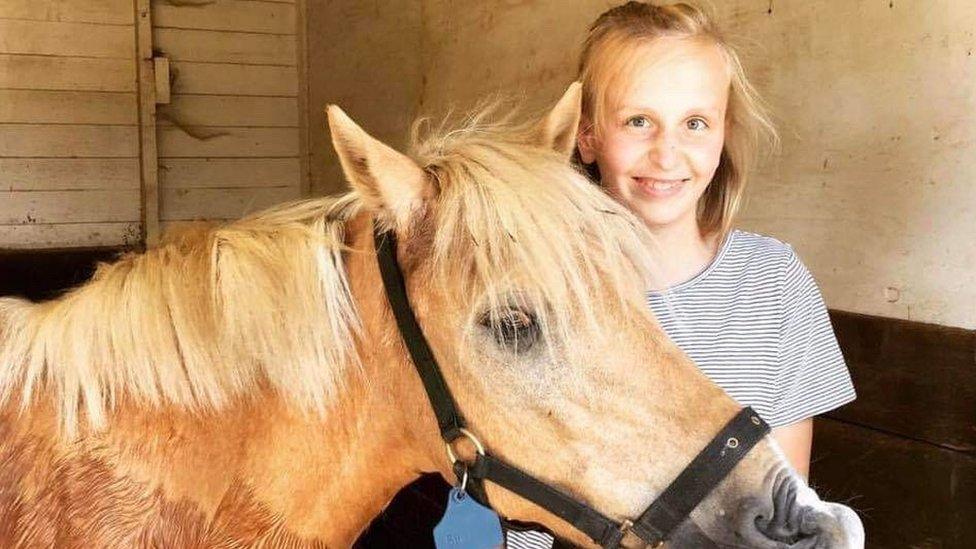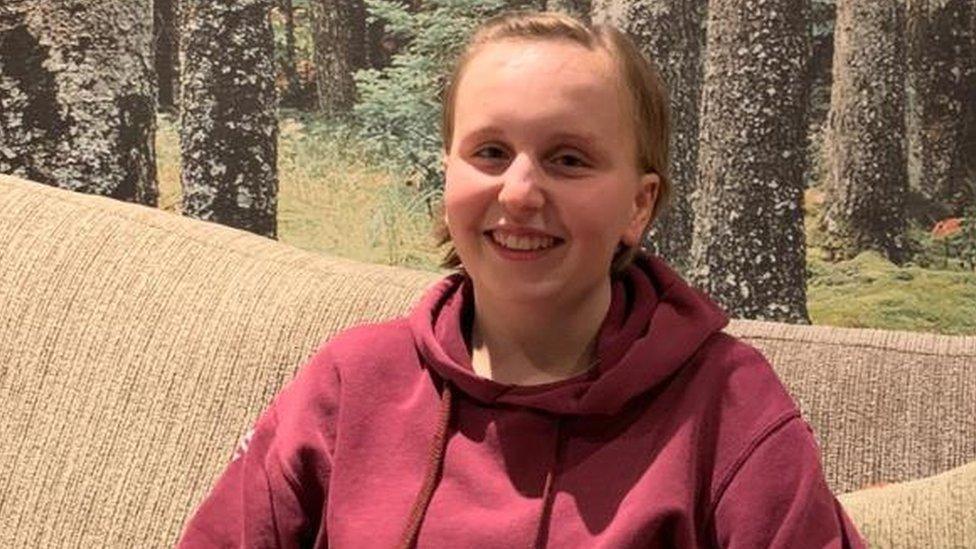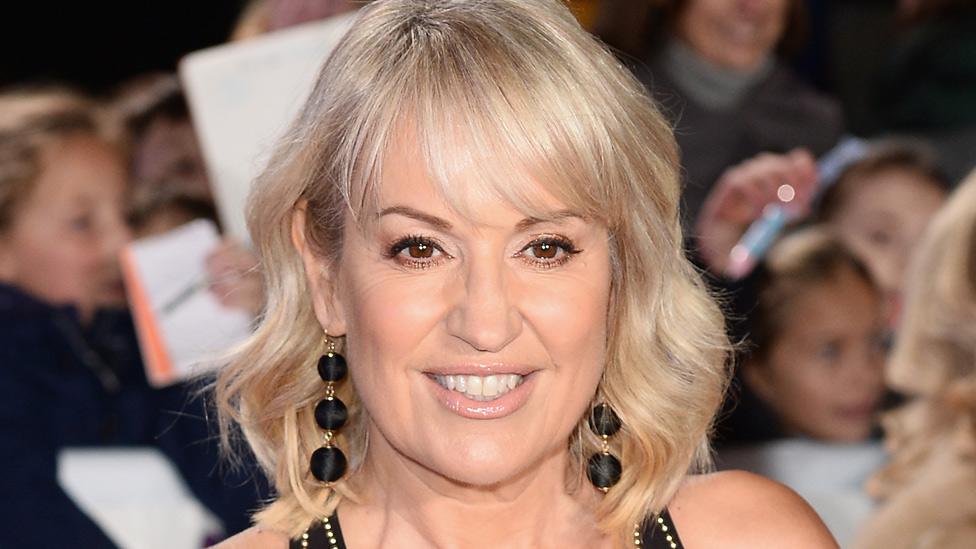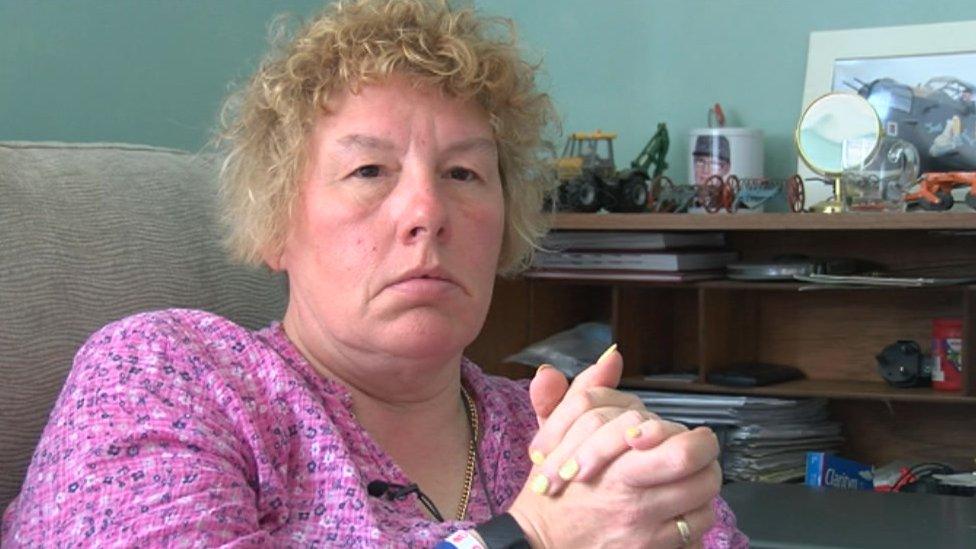Teenager diagnosed with brain tumours told she was anorexic
- Published

Jade Asbury, 19, managed to carry on working one day a week with horses while undiagnosed with three brain tumours
A teenager has told how doctors said she was anorexic before it was found she had three rare brain tumours.
Jade Asbury, 19, had many trips to GPs when she experienced months of symptoms including unexplained weight loss.
The tumours were detected when her optician referred her for tests.
Ms Asbury, an ambassador for The Brain Tumour Charity, said she "understood why doctors thought she had anorexia", but hoped it would not happen to others.
The former agricultural student, from Fordham in Cambridgeshire, realised something was wrong when she developed sight problems, could not see road signs clearly and also drove up a kerb.
Ms Asbury's mother said her daughter had a range of symptoms "including the fact her periods had stopped, which doctors had put down to what they thought was anorexia".

Ms Asbury is one of just 10 people a year to be diagnosed in the UK with the rare form of cancer, The Brain Tumour Charity said
She had her sight tested at an optician, and also went to her GP surgery.
"It's heartbreaking to think just how much effort she must have had to make just to try to function normally," her mother said.
Scans and tests at Addenbrooke's Hospital in Cambridge revealed three germinoma brain tumours, described as "very rare" by The Brain Tumour Charity and affecting just 10 people a year in the UK.
One tumour pushed on her optic nerve, another squeezed on her pituitary gland and a third developed on her brain's frontal part.

Symptoms of a brain tumour
severe, persistent headaches
seizures (fits)
persistent nausea, vomiting and drowsiness
mental or behavioural changes, such as memory problems or changes in personality
progressive weakness or paralysis on one side of the body
vision or speech problems

While scans have shown no recurrences, Ms Asbury will be on medication for the rest of her life after her pituitary gland was damaged during radiotherapy.
Ms Asbury said she decided to become a charity ambassador to raise awareness of the signs and symptoms of brain tumours in young people.
She also wanted sufferers to get their "diagnosis period shortened so they can get through treatment quicker", and meet others like her at the charity's get-togethers.
"I understand why the doctors thought I had anorexia, but I want to do whatever I can to make sure this doesn't happen to people like me in the future," she said.
- Published18 May 2019

- Published6 May 2019
